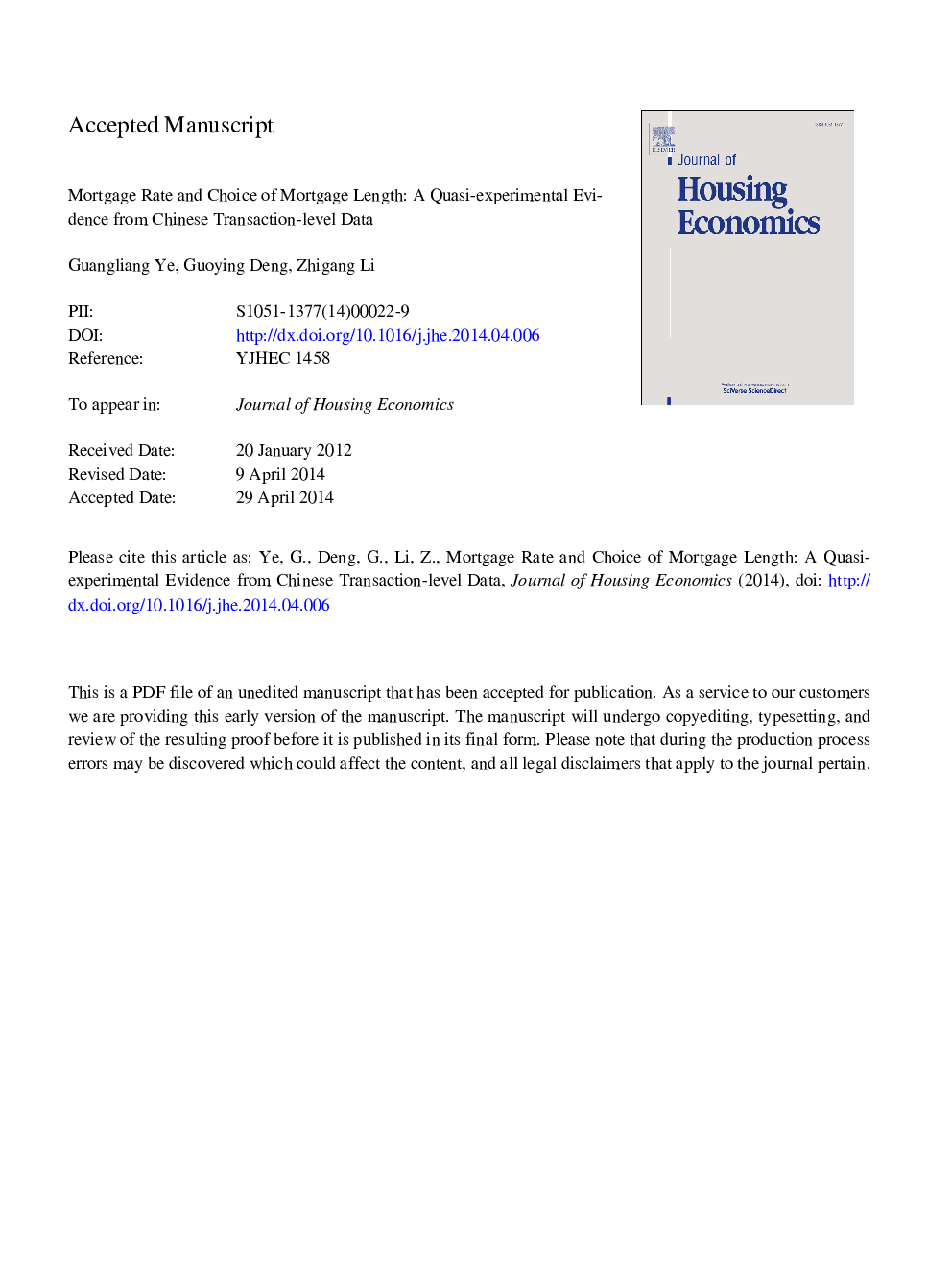| Article ID | Journal | Published Year | Pages | File Type |
|---|---|---|---|---|
| 962693 | Journal of Housing Economics | 2014 | 32 Pages |
Abstract
Utilizing a large transaction-level dataset on housing mortgages in China, this study estimates the effect of the mortgage rate spread between long- and short-term loans on property purchasers' choice of loan length. To identify the effect of this spread on loan length, we rely on a unique institutional feature in China-the “dual-track” mortgage scheme. We observe two types of mortgagors in this setting: “normal” mortgagors, who face floating mortgage-rate spreads, and “special mortgagors,” who are entitled to a fixed mortgage rate spread. Using the latter as a comparison group to address the confounding effects of omitted factors, we find that the change in interest rates significantly affects the mortgage decisions of normal mortgagors. When the prime mortgage rate spread increases by ten basis points, the likelihood of such a mortgagor choosing a short-term loan increases by 8.4 percent.
Keywords
Related Topics
Social Sciences and Humanities
Economics, Econometrics and Finance
Economics and Econometrics
Authors
Guangliang Ye, Guoying Deng, Zhigang Li,
